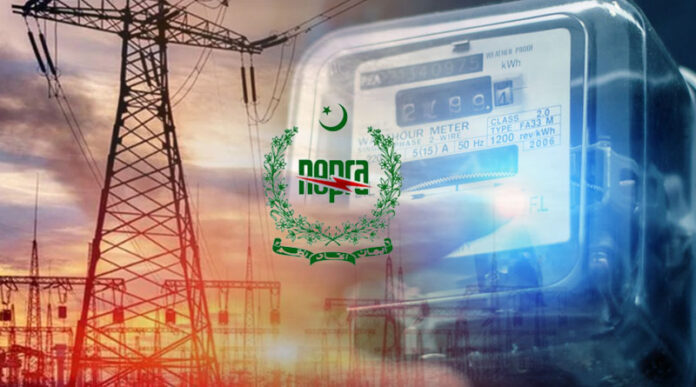ISLAMABAD: The National Electric Power Regulatory Authority (NEPRA) has completed its public hearing on the federal government’s proposed winter electricity package for fiscal year 2025, which aims to offer significant savings to domestic and industrial consumers.
The winter electricity package aims to incentivize increased electricity consumption during the traditionally low-demand winter months by offering significant discounts to domestic and industrial consumers. A detailed NEPRA’s decision on the package is expected soon.
The hearing, chaired by NEPRA Chairman Waseem Mukhtar, reviewed the Winter Demand Initiative FY-2025, which has already been approved by the Economic Coordination Committee (ECC). The initiative, effective from December 2024 to February 2025, is designed to be subsidy-neutral and focuses on maximizing the use of system generation capacity while reducing gas consumption.
The winter electricity package, which targets industrial, domestic, and commercial users, offers discounts on additional electricity usage compared to the same period last year.
As per key benefits for power consumers under the winter package, discounts for consumers of domestic consumers will range between 30 percent (Rs. 11.42 per unit) for minimal additional usage and 50pc (Rs. 26 per unit) for higher usage. Furthermore, the discounts for the industrial consumers will range between 18% (Rs. 5.72 per unit) for minimal additional usage and 37% (Rs. 15.05 per unit) for higher usage. However, the initiative caps consumption increases at 25% compared to the previous year and excludes solar (net metering) consumers, drawing criticism from stakeholders.
The Ministry of Energy assured that the package, designed using advanced simulation tools such as Plexos software, aligns with system generation constraints. The package will also be available to K-Electric (KE) consumers under the same terms as those of power distribution companies (DISCOs).
During the hearing, representatives from the Central Power Purchasing Agency-Guaranteed (CPPA-G) clarified that only positive Fuel Cost Adjustments (FCA) would apply to incremental consumption, and Debt Servicing Surcharges (DSS) would not. They also emphasized that the initiative is expected to be cheaper than alternative energy sources such as LPG or RLNG-based heating.
Various industry representatives, including Arif Bilwani, Tanveer Barry, and Rehan Jawed, raised concerns over the exclusion of net metering consumers and the 25% cap on additional consumption. Rehan Jawed challenged the government’s savings claims, suggesting real savings might only range between Rs. 4 and Rs. 4.5 per unit, contrary to CPPA-G’s estimates of Rs. 5.72 to Rs. 15.05 per unit.
Tanveer Barry highlighted that past packages had not benefited Karachi industries equally. He urged the government to ensure that Karachi’s industrial sector receives the same benefits as those extended to other regions. CPPA-G officials argued that net metering consumers already enjoy capacity charge exemptions, and including them would strain financial resources.
NEPRA has emphasized its commitment to balancing affordability with efficient energy sector reforms. Stakeholders have been invited to submit written feedback, which will be reviewed alongside further data analysis before issuing a final decision. NEPRA aims to ensure the package achieves its objectives of providing relief to consumers while stabilizing energy demand during winter.
The Winter Demand Initiative is expected to increase electricity consumption by up to 16% during its three-month duration, potentially reducing reliance on imported fuels and bolstering industrial productivity. However, stakeholders have warned that delays in implementation or unaddressed exclusions could undermine its effectiveness.
It is relevant to note that the Winter Demand Initiative, approved by the Economic Coordination Committee (ECC) on November 19, 2024, is subsidy-neutral and will be effective from December 2024 to February 2025. This winter demand initiative is for the industrial, domestic — Time of Use (ToU) and non-ToU — consumers exceeding 200 units, commercial and general services consumers of power distribution companies (DISCOs) and K-Electric ostensibly to enable optimum use of system generation capacity besides reducing gas demand due to the shifting of favourable demand towards electricity .The winter demand initiative is expected to increase consumption by up to 16 per cent.
Though the winter demand initiative is designed to be subsidy-neutral and focuses on encouraging higher electricity usage during the traditionally low-demand winter months (December to February), however, earlier, NEPRA, in a letter to the Power Division, stated that increased electricity consumption under the scheme could drive fuel charges above Rs. 26 per unit.
While the initiative offers significant potential for relief and system efficiency, concerns from industrial and solar consumers underscore the need for more inclusive policies. The upcoming decision will be crucial for determining how effectively the package can support Pakistan’s energy sector and its consumers.




